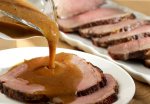pedr
Explorer
The 'origin of the term' bit in the US section of the "College" entry on Wikipedia is interesting - while the first US higher education institutions were small and their founders compared them to the constituent colleges of the two English Universities they knew of (and were graduates of) as they were places of residence, eating together, individual tuition, etc rather than formal and bureaucratic (and didn't teach higher degrees in theology and medicine) the expansion of higher education in the UK came by 19th and early 20th century institutions receiving University status, and these tended not to have an Oxbridge-style collegiate structure so the word "college" wasn't used except internally within Oxford, Cambridge and a handful of others.
And to be precise, in the UK the word "university" generally designates an institution which awards its own degrees while a college is part of a larger institution with degree-awarding powers. It seems that the early US colleges were given these powers in their own right so the word doesn't carry that distinctive meaning in the US.
And to be precise, in the UK the word "university" generally designates an institution which awards its own degrees while a college is part of a larger institution with degree-awarding powers. It seems that the early US colleges were given these powers in their own right so the word doesn't carry that distinctive meaning in the US.





